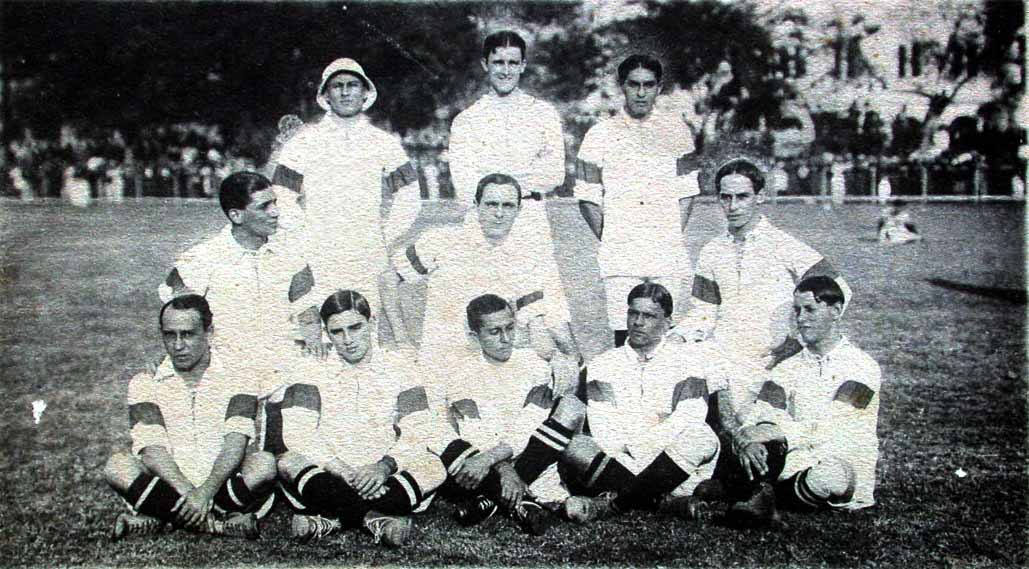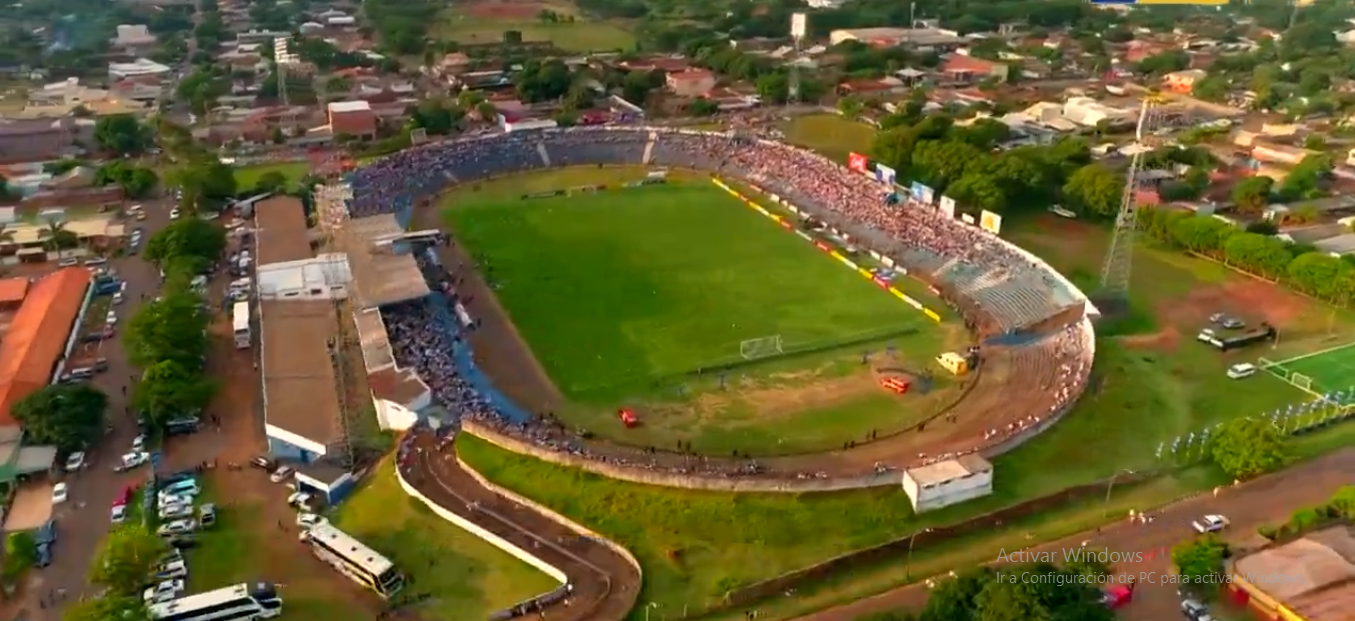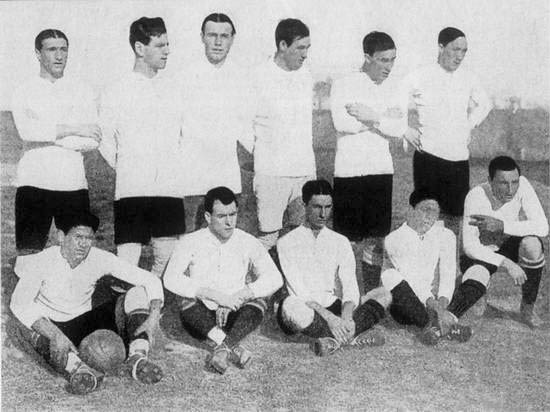|
Andrés Fleurquin
Andrés José Fleurquin Rubio (born 8 February 1975) is a Uruguayan retired footballer who played as a defensive midfielder. Club career Born in Montevideo, Fleurquin started playing football with local Defensor Sporting. In 1999 he moved abroad for the first time, joining SK Sturm Graz in Austria and being regularly used by the club during two and a half Bundesliga seasons, with two runner-up league finishes. In August 2001, Fleurquin signed for Galatasaray SK in Turkey, being a very important first-team unit as the side won another Süper Lig championship. After one year in France with Stade Rennais F.C. he moved to Spain, where he would remain for the following seven years. Fleurquin started in Segunda División with Córdoba CF. For 2004–05 he continued in that level and Andalusia, but eventually attained La Liga promotion with Cádiz CF, being immediately relegated back with the player appearing in 30 matches and scoring once – on 2 October 2005, in a 1–1 home draw ... [...More Info...] [...Related Items...] OR: [Wikipedia] [Google] [Baidu] |
Cádiz CF
Cádiz Club de Fútbol, S.A.D., known simply as Cádiz, is a Spanish professional football club based in Cádiz, Andalusia. Founded in 1910, the club competes in the La Liga, holding home games at Nuevo Mirandilla, with a seating capacity of 20,724. Salvadoran legend Mágico González played for the club during the 1980s/1990s, and is widely recognized as the best player to ever play for the team. Between 1929 and 1977, Cádiz played in either the second or third tier of Spanish football. In 1977, Cádiz achieved promotion to La Liga for the first time. Since then Cádiz has played fourteen seasons in the first tier, as well as spending several at the second level. History The first documented game of Cádiz CF was played against Cádiz Sporting Club on Thursday, 8 September 1910. Cádiz CF won it 1–0. Two days later on 10 September 1910, several Cádiz citizens appealed to Civil Government to register a club under the name Cádiz Foot-Ball Club. One of the founders was Jos ... [...More Info...] [...Related Items...] OR: [Wikipedia] [Google] [Baidu] |
Spain
, image_flag = Bandera de España.svg , image_coat = Escudo de España (mazonado).svg , national_motto = ''Plus ultra'' (Latin)(English: "Further Beyond") , national_anthem = (English: "Royal March") , image_map = , map_caption = , image_map2 = , capital = Madrid , coordinates = , largest_city = Madrid , languages_type = Official language , languages = Spanish language, Spanish , ethnic_groups = , ethnic_groups_year = , ethnic_groups_ref = , religion = , religion_ref = , religion_year = 2020 , demonym = , government_type = Unitary state, Unitary Parliamentary system, parliamentary constitutional monarchy , leader_title1 = Monarchy of Spain, Monarch , leader_name1 = Felipe VI , leader_title2 = Prime Minister of Spain ... [...More Info...] [...Related Items...] OR: [Wikipedia] [Google] [Baidu] |
Brazil National Football Team
The Brazil national football team ( pt, Seleção Brasileira de Futebol), nicknamed ''Seleção Canarinho'' (‘Canary Squad’, after their bright yellow jersey), represents Brazil in men's international football and is administered by the Brazilian Football Confederation (CBF), the governing body for football in Brazil. They have been a member of FIFA since 1923 and a member of CONMEBOL since 1916. Brazil is the most successful national team in the FIFA World Cup, being crowned winner five times: 1958, 1962, 1970, 1994 and 2002. The ''Seleção'' also has the best overall performance in the World Cup competition, both in proportional and absolute terms, with a record of 76 victories in 114 matches played, 129 goal difference, 247 points, and 19 losses. It is the only national team to have played in all World Cup editions without any absence nor need for playoffs, and the only team to have won the World Cup in four different continents: once in Europe ( 1958 Sweden), ... [...More Info...] [...Related Items...] OR: [Wikipedia] [Google] [Baidu] |
Paraguay
Paraguay (; ), officially the Republic of Paraguay ( es, República del Paraguay, links=no; gn, Tavakuairetã Paraguái, links=si), is a landlocked country in South America. It is bordered by Argentina to the south and southwest, Brazil to the east and northeast, and Bolivia to the northwest. It has a population of seven million, nearly three million of whom live in the capital and largest city of Asunción, and its surrounding metro. Although one of only two landlocked countries in South America (Bolivia is the other), Paraguay has ports on the Paraguay and Paraná rivers that give exit to the Atlantic Ocean, through the Paraná-Paraguay Waterway. Spanish conquistadores arrived in 1524, and in 1537, they established the city of Asunción, the first capital of the Governorate of the Río de la Plata. During the 17th century, Paraguay was the center of Jesuit missions, where the native Guaraní people were converted to Christianity and introduced to European culture. ... [...More Info...] [...Related Items...] OR: [Wikipedia] [Google] [Baidu] |
1999 Copa América
The 1999 Copa América was a football tournament held in Paraguay, from 29 June to 18 July. It was organized by CONMEBOL, South America's football governing body. There was no qualifying for the final tournament. Mexico and Japan were invited to take part, with the latter becoming the first team to from outside the Americas to participate in the competition. Uruguay sent a youth team. Competing nations As with previous tournaments, all ten members of CONMEBOL participated in the competition. In order to bring the number of competing teams to twelve, CONMEBOL invited Mexico (accepting their fourth invitation) from the CONCACAF and Japan from the AFC. * * * (holders) * * * * (invitee) * (invitee) * (hosts) * * * Venues A total of four host cities hosted the tournament. The opening and final game were hosted by Estadio Defensores del Chaco. Squads For a complete list of participating squads: '' 1999 Copa América squads'' Venue selection Paraguay was chosen to b ... [...More Info...] [...Related Items...] OR: [Wikipedia] [Google] [Baidu] |
Copa América
The Copa América ( en, America Cup) or CONMEBOL Copa América, known until 1975 as the South American Football Championship (''Campeonato Sudamericano de Fútbol'' in Spanish and ''Campeonato Sul-Americano de Futebol'' in Portuguese), is the top men's football tournament contested among national teams from South America. It is the oldest still-running continental football competition, as well as the third most watched in the world. The competition determines the champions of South America. Since the 1990s, teams from North America and Asia have also been invited to compete. Since 1993, the tournament has generally featured 12 teams—all 10 CONMEBOL teams and two additional teams from other confederations. Mexico participated in every tournament between 1993 and 2016, with one additional team drawn from CONCACAF, except for 1999, when AFC team Japan filled out the 12-team roster, and 2019, which featured Japan and Qatar. The 2016 version of the event, Copa América Cente ... [...More Info...] [...Related Items...] OR: [Wikipedia] [Google] [Baidu] |
Cap (sport)
In sport, a cap is a player's appearance in a game at international level. The term dates from the practice in the United Kingdom of awarding a cap to every player in an international match of rugby football and association football. In the early days of football, the concept of each team wearing a set of matching shirts had not been universally adopted, so each side would distinguish itself from the other by wearing a specific sort of cap. An early illustration of the first international football match between Scotland and England in 1872 shows the Scottish players wearing cowls, and the English wearing a variety of school caps. The practice was first approved on 10 May 1886 for association football after a proposal made by N. Lane Jackson , founder of the Corinthians: The act of awarding a cap is now international and is applied to other sports. Although in some sports physical caps may not now always be given (whether at all or for each appearance) the term ''cap'' for a ... [...More Info...] [...Related Items...] OR: [Wikipedia] [Google] [Baidu] |
Penalty Card
Penalty cards are used in many sports as a means of warning, reprimanding or penalising a player, coach or team official. Penalty cards are most commonly used by referees or umpires to indicate that a player has committed an offence. The official will hold the card above their head while looking or pointing towards the player that has committed the offence. This action makes the decision clear to all players, as well as spectators and other officials in a manner that is language-neutral. The colour or shape of the card used by the official indicates the type or seriousness of the offence and the level of punishment that is to be applied. Yellow and red cards are the most common, typically indicating, respectively, cautions and dismissals. History and origin The idea of using language-neutral coloured cards to communicate a referee's intentions originated in association football, with English referee Ken Aston. Aston had been appointed to the FIFA Referees' Committee and was resp ... [...More Info...] [...Related Items...] OR: [Wikipedia] [Google] [Baidu] |
2008–09 Segunda División B
The 2008–09 Segunda División B season was the 32nd since its establishment. The first matches of the season were played on 30 August 2008, and the season ended on 21 June 2009 with the promotion play-off finals. Group 1 *Teams from Asturias, Basque Country, Cantabria, Castile and León and Galicia. Summary before 2008–09 season Scores and Classification - Group 1* Playoffs de Ascenso: ** SD Ponferradina - Eliminated in Second Round ** SD Huesca - Promoted to Segunda División ** Zamora CF - Eliminated in Second Round ** Barakaldo CF - Eliminated in First Round ---- *Promoted to this group from Tercera División: ** Racing Santander B - Founded in: 1926//, Based in: Santander, Cantabria//, Promoted From: Group 3 ** Sporting de Gijón B - Founded in: 1967//, Based in: Gijón, Asturias//, Promoted From: Group 2 ---- *Relegated to this group from Segunda División: ** Racing de Ferrol - Founded in: 1919//, Based in: Ferrol, Galicia//, Relegated From: Segunda División ---- ... [...More Info...] [...Related Items...] OR: [Wikipedia] [Google] [Baidu] |
RC Celta De Vigo
Real Club Celta de Vigo (; ), commonly known as Celta de Vigo or simply Celta, is a Spanish professional football club based in Vigo, Galicia, that competes in La Liga, the top tier of Spanish football. Nicknamed ''Os Celestes'' (The Sky Blues), the club was founded on 1923 as ''Club Celta'', following the merger of two Vigo-based teams. The club's home stadium is Balaídos, which seats 29,000 spectators. The club's name is derived from the Celts, a people who once lived in the region. Its main rival is fellow Galician club Deportivo La Coruña, with whom it contests the Galician derby. Celta have never won the league title nor Copa del Rey, although they have reached the final three times in the latter. The club finished in their best-ever position of fourth in 2002–03, qualifying for the 2003–04 UEFA Champions League, where they were eliminated by Arsenal in the round of 16. In the 2016–17 UEFA Europa League, Celta reached the semi-finals for the first time, losing to ... [...More Info...] [...Related Items...] OR: [Wikipedia] [Google] [Baidu] |
2005–06 La Liga
The 2005–06 La Liga season, the 75th since its establishment, started on 27 August 2005 and finished on 20 May 2006 due to all top-flight European leagues ending earlier than the previous season because of 2006 FIFA World Cup. Teams Twenty teams competed in the league – the top seventeen teams from the previous season and the three teams promoted from the Segunda División. The promoted teams were Cádiz, Celta de Vigo and Alavés, returning to the top flight after an absence of twelve, one and two years respectively. They replaced Levante, Numancia (both teams relegated after a season's presence) and Albacete (ending their two-year top flight spell). Team information Clubs and locations (*) Promoted from Segunda División. League table Results Overall * Most wins - Barcelona (25) * Fewest wins - Málaga (5) * Most draws - Zaragoza (16) * Fewest draws - Celta de Vigo (4) * Most losses - Málaga (24) * Fewest losses - Barcelona (6) * Most goals s ... [...More Info...] [...Related Items...] OR: [Wikipedia] [Google] [Baidu] |
La Liga
The Campeonato Nacional de Liga de Primera División, commonly known simply as Primera División in Spain, and as La Liga in English-speaking countries and officially as LaLiga Santander for sponsorship reasons, stylized as LaLiga, is the men's top professional football division of the Spanish football league system. Administered by the Liga Nacional de Fútbol Profesional, it is contested by 20 teams, with the three lowest-placed teams at the end of each season being relegated to the Segunda División and replaced by the top two teams and a play-off winner in that division. Since its inception, a total of 62 teams have competed in La Liga. Nine teams have been crowned champions, with Barcelona winning the inaugural La Liga and Real Madrid winning the title a record 35 times, most recently in the 2021–22 season. During the 1940s Valencia, Atlético Madrid and Barcelona emerged as the strongest clubs, winning several titles. Real Madrid and Barcelona dominated the champions ... [...More Info...] [...Related Items...] OR: [Wikipedia] [Google] [Baidu] |






.png)